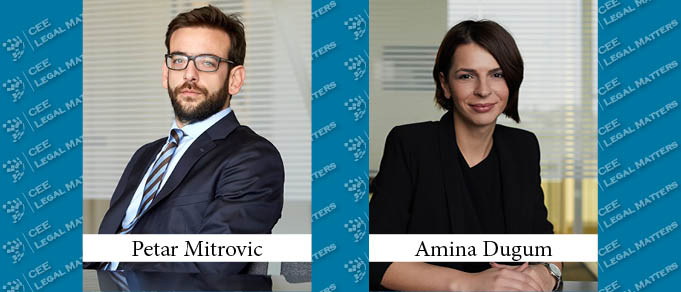Bosnia and Herzegovina (BH) is a contracting party to the Energy Community. As such, it has undertaken the obligation to align its energy sector legislation and transpose the Third Energy Package in the gas sector, among others. Such alignment in the gas sector requires the adoption of state and entity-level legislation to ensure unbundling, third party access, the liberalization of the wholesale market, end-consumer protection, and adequate interconnectivity.
However, almost 15 years after the Energy Community Treaty, BH still remains far away from complying with its requirements in the gas sector. One of the structural problems is the lack of state-level legislation. To date, the legislation regulating the gas sector exists only at the level of the entities (Federation Bosnia and Herzegovina (FBH) and Republic of Srpska (RS)) but not at the level of BH, although the deadline for adopting a state-level Law on Gas expired in 2017.
Currently, the FBH continues to apply the 2007 Regulation on the Organization and Regulation of the Gas Sector in Federation of Bosnia and Herzegovina which regulates the organization, rules, and conditions for carrying out energy activities in the natural gas sector, the rights and duties of natural gas sector participants, the separation of the system operator’s activities, third party access to the natural gas system, and the opening of the natural gas market. The Regulation is outdated and fails to transpose any key principles of the gas acquis. Additionally, there is no gas regulator in the FBH.
As opposed to the FBH, RS enacted its entity-level Law on Gas in 2018, transposing the unbundling and certification requirements and relevant provisions on capacity allocation, transparency, and congestion management from the Third Package.
In order to meet the requirements of the Third Energy Package, it is necessary to regulate gas sector topics at the level of BH. Due to the ongoing lack of alignment with the acquis in the gas sector, BH is in a serious and constant breach of its commitments as a contracting party to the Energy Community Treaty. The lack of state-level legislation, which has long been an issue of concern to the Energy Community Secretariat, has resulted in the initiation of several infringement cases against BH and poses a significant obstacle to the development of the gas sector at a national and regional level, thus jeopardizing the achievement of the key objectives of the Energy Community Treaty.
Why is BH still missing state-level legislation in the gas sector? Formally, because the FBH and the RS cannot reach the consensus necessary to adopt a state-level Law on Gas. The reasons for this, as in many similar cases in the past, lead us to chicken and egg dilemma. The roadmap set by the Secretariat and the relevant BH and entity-level authorities outlines the need to adopt a state-level Law on Regulator of Electricity and Natural Gas, Transmission, and Electricity Market (the “Law on Regulator”) and a state-level Law on Gas. The RS has withheld its approval for the adoption of a state-level Law on Regulator and has instead adopted an entity-level Law on Gas, giving its entity level authorities the competences which should properly be delegated to the state-level authorities. On the other hand, the FBH does not provide the consensus necessary for the adoption of a state-level Law on Gas.
The development of the gas sector and much-needed construction of new gas infrastructure in order to ensure the security of supply and diversification of gas routes and sources, the modernization and adequate maintenance of existing gas infrastructure, the management of gas price competitiveness, and the standardization of key gas topics, remain hostage to the political relations between the two entities.
Hopefully, this crisis will not last much longer and entities will find a way to overcome the disputes and enable further development of the gas sector.
The information in this document does not constitute legal advice on any particular matter and is provided for general informational purposes only.
By Petar Mitrovic, Partner, and Amina Dugum, Senior Associate, independent Attorneys at Law in cooperation with Karanovic & Partners
This Article was originally published in Issue 7.6 of the CEE Legal Matters Magazine. If you would like to receive a hard copy of the magazine, you can subscribe here.

















